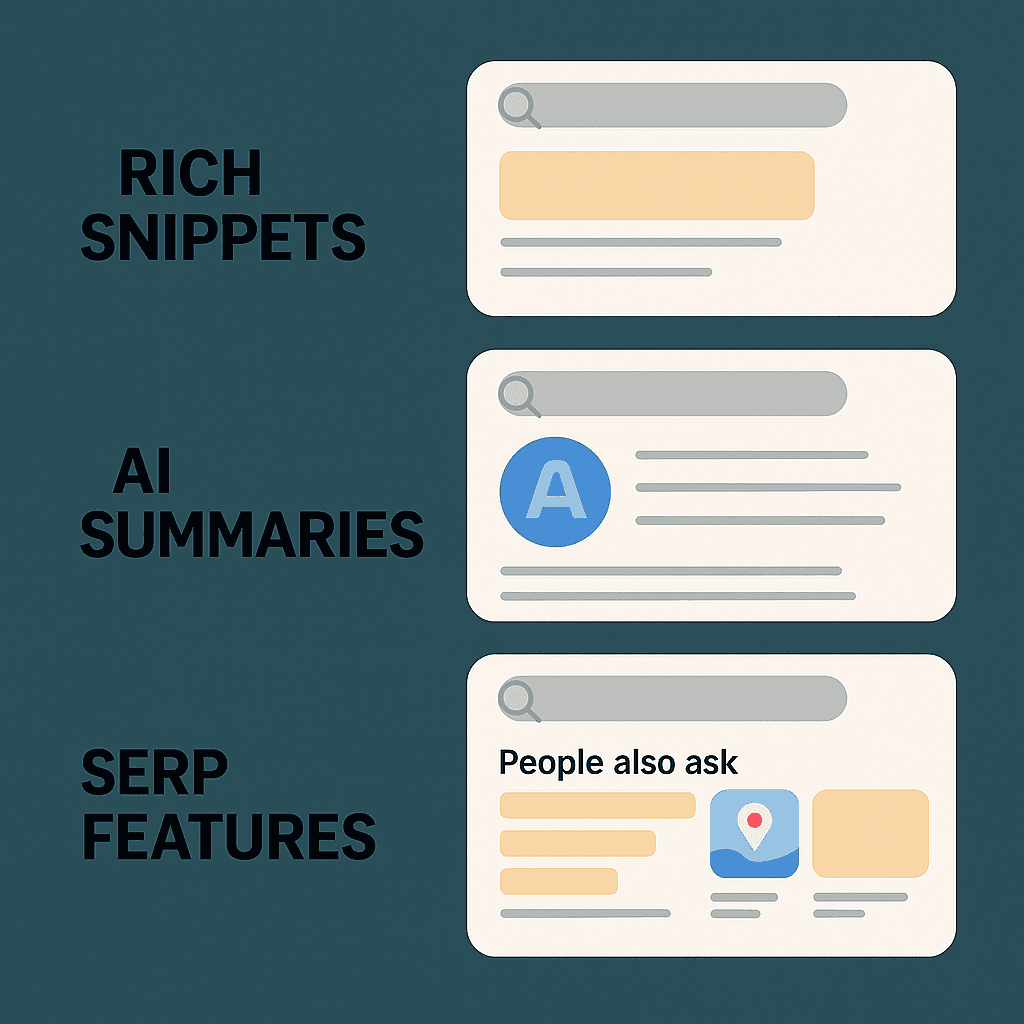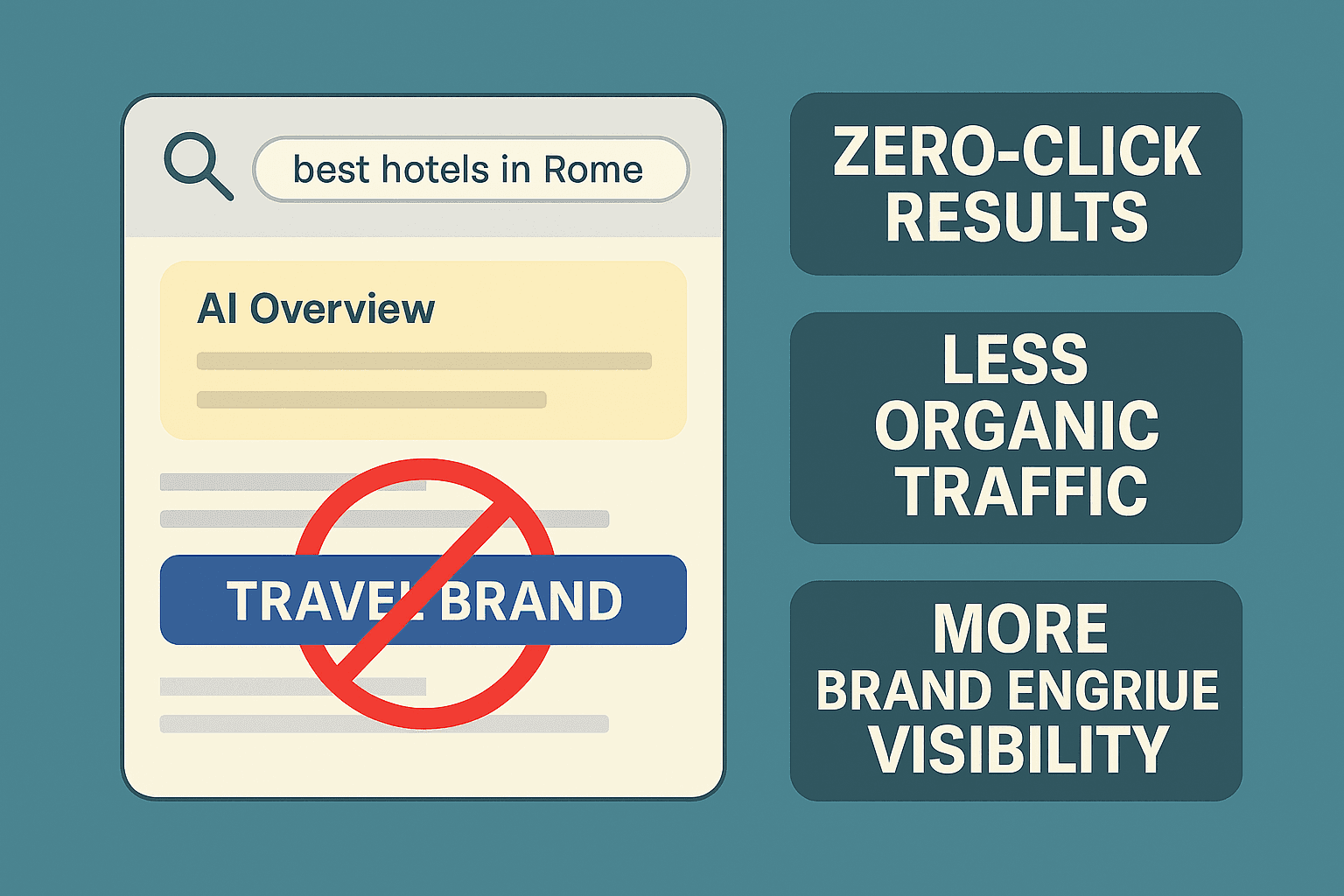
The rise of zero-click search environment
Oct 27, 2025
For years, search was simple: people typed a query, clicked a result, and landed on a brand’s website. Today, that model is quietly being dismantled. Google, along with other platforms, increasingly delivers answers directly in the search results through rich snippets, AI overviews, knowledge panels, and instant results. The outcome? A growing share of user interactions ends without a single click. This “zero-click” search environment is changing the rules for marketers and advertisers who rely on traffic and attribution to prove ROI.
What’s Driving This Shift
Platforms like Google are optimizing for user experience and for keeping users on their own properties.
Rich snippets summarize content right on the results page.
AI summaries answer questions without sending users anywhere.
SERP features (e.g. “People also ask,” map packs, product carousels) give users what they need in one view.
According to multiple marketing trend reports (MarTechView, Neil Patel, Digital Marketing Institute), organic clicks are steadily declining, even as search volumes grow.

Why This Matters for Advertisers
Zero-click does not just reduce organic traffic, it reshapes the marketing funnel itself.
Less Owned Traffic, More Platform Dependence
When Google answers the question directly, users may never reach your site. This weakens first-party data collection and increases reliance on the platform’s reporting.
Harder Attribution
Fewer landing page visits mean fewer clean conversion paths. Marketers lose visibility into what actually drives behavior.
Shift from CTR to Visibility Metrics
Your link may not be clicked, but brand exposure still happens higher up the funnel. Impressions and on-SERP visibility become more important signals.
Greater Competition for Paid Real Estate
As organic visibility shrinks, advertisers crowd into sponsored slots. This drives CPCs up and ROAS down, especially in competitive industries.
Example: A travel company targeting “best hotels in Rome” may previously have ranked first organically. Now, Google’s AI Overview delivers the answer directly, pushing the brand below the fold. Even if impressions rise, the clicks and conversions are gone.

Strategic Shifts for Marketers
This is not a temporary blip. It is a structural shift. Marketers need to adapt their strategies accordingly:
Optimize for SERP features, not just rankings. Structure content so it can be featured in snippets, FAQs, and AI answers.
Build stronger owned channels. Email, communities, and apps become crucial for direct engagement.
Invest in brand recognition. If your name shows up in an AI-generated answer, brand recall matters more than the click itself.
Use ads more strategically. Competing in zero-click search means being intentional with paid placements, not just throwing budget at keywords.
Strengthen measurement. Zero-click means less transparent traffic. Fraud-resistant, on-site verification (like Fraud0 provides) becomes key to distinguishing real engagement from noise.
A New Reality: Visibility Without the Visit
In a zero-click world, the visit is no longer the only currency. What matters is being seen, trusted, and remembered, even when users do not leave Google’s ecosystem.
For advertisers, this means shifting mindset from traffic capture to visibility and trust capture. The winners will be the brands that embrace platform changes early, build independent data foundations, and make every impression count.
The front page of the internet has changed. The question is: will your marketing strategy change with it?
